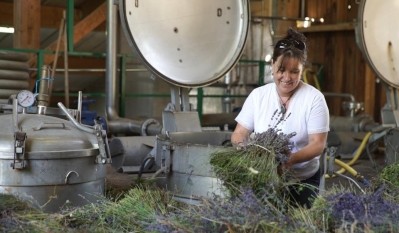Go slow: South Korea plans to support R&D of slow-release supplements with new guidelines

Slow-release health supplements are designed to deliver active ingredients in the body for a sustained period.
At present, the South Korean authorities allow manufacturers to use enteric-coating technology to produce supplements that could withstand gastric acid and only disintegrate in the intestines.
Considering consumer demand and advancements in technology, the Ministry of Food and Drug Safety (MFDS) said it planned to put in place new standards to increase the types of slow-release supplements that could be manufactured.
“As consumer demand for health functional foods in various formulations with new technology has recently increased, we are establishing additional definitions and test methods for the product so that health functional foods can be manufactured as ‘sustainable products that melt more slowly than general products,” the regulator said.
It also hopes to promote the concept of “sustainable” health supplements, where consumers could achieve similar health benefits through reduced frequency of consumption.
At the same time, novel product formats could be developed with the use of new disintegration technologies.
“When ‘sustainable products’ are newly established, the frequency of consumption is reduced, which increases consumer convenience, and more diverse products are developed, which is expected to contribute to the revitalisation of related industries by expanding product options,” said the MFDS.
For example, if the required daily intake of a vitamin C product is three tablets daily, it hopes that new technologies would be used to reduce the daily intake into a single vitamin C tablet.
Aside from vitamin C, the MFDS said that slow disintegration technologies could be applied to other water-soluble vitamins, such as the B vitamins, including vitamin B1, B2, B6, B12, niacin, pantothenic acid, and biotin.
The proposal is currently open for public consultation until September 25.
Examples of slow-release technologies
Microencapsulation of active ingredients and multi-layer delivery technology are some examples of slow-release technologies.
Unilever-backed Wellbeing Nutrition is one of the examples specialising in using these technologies in making slow-release supplements.
The Indian firm has launched capsules containing both MCT coconut oil and caviar-size microencapsulated beadlets, so that active ingredients could be released over an eight-hour period.
In this case, MCT oil works as an absorbent base, while the microencapsulated beadlets contain ingredients layered in the order of their time-release profile.
Japan’s FANCL, on the other hand, launched an immune health supplement tablet that claims to protect it from moisture and prevent premature disintegration.
To do so, the firm uses a blend of water repelling oil, fats, and polymers to form a coating around the tablet. The coating prevents the tablet from reacting with trace amounts of moisture in the air during production and storage.











